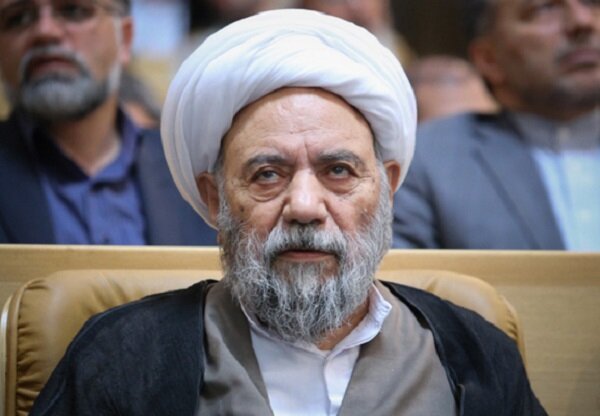Before the Imam was exiled, the owner of one of the large factories in Tehran built a mosque and asked the Imam to send a missionary to guide the people.
According to Ashura News, citing Mehr News Agency, in the eventful history of the revolution, there was no day like the 12th of Bahman, when a man from the lineage of the prophets and in their manner, with a miraculous hand and a heart as deep and wide as the sea, descended among a worthy and hopeful people as a sign of mercy, placing them on the wings of the angels of the power of truth and raising them to the throne of honor and greatness. And there was no day like the 14th of Khordad, when a storm of calamity and mourning brought down the scourge of sorrow and grief on these people. Iran became one heart, and that heart burned in a melting longing, and it became one eye, and that eye wept in a great calamity. Although vast dimensions of the Imam's noble personality still remain unknown, and the effort to discover and perceive some of them requires more time, reflecting on the visible part of the known dimensions of the Imam's personality can reveal invisible angles in the unknown dimensions of that desire of hearts.
On the occasion of the thirty-sixth anniversary of the tragic passing of the great leader of the Islamic Revolution, Imam Khomeini, we will reread the narratives of several of the students and admirers of that exceptional personality. What you will read below is the narrative of the late Ayatollah Sheikh Hassan Sanei of the Imam (may Allah have mercy on him):

For about seven years, when we were in the presence of the Imam and we used to go to his house, we did not notice that the Imam had a margin on “Urwah” or “Wasilah”, although others usually tell their students in lessons and discussions that, for example, I have mentioned this issue in a certain writing. However, if the Imam was asked a question, he would answer it but would not refer to his own writings. Even after the death of Ayatollah Boroujerdi, when the ground was ready for raising such issues, the Imam was still not eager to raise them. And after seven years, one day, while we were sitting under a chair in his house in the winter season, we saw a book on the chair that did not look like the usual books of the seminary. We asked the Imam what this book was? Let us look. He said: “It is a margin on Wasila.” All of this spoke of the Imam’s asceticism and piety.
Before the Imam was exiled, the owner of a large factory in Tehran built a mosque and asked the Imam to send a missionary to guide the people. The Imam initially reluctantly accepted this. However, after appointing a cleric and when he was sent, he said: “In addition to preaching and guiding, your duty is not to forget two things: first, my name should not be mentioned in this mosque. Second, your dealings with the founder of the mosque should be such that he does not think that we are coveting his wealth and property.”
The Imam always traveled alone in his travels and visits. One day, the Imam wanted to visit a scholar in Qom, but they did not have his address and asked me for his address. No matter how much I insisted that I accompany him to that house as a guide, they did not accept it.
In Qom, at the beginning of the revolution, the Imam would hold public meetings and give detailed speeches every day from about 8:30 in the morning until noon, and he would go up the stairs to the roof several times and respond to the expressions of the feelings of the Hezbollah community. One day, a few minutes before noon, as the Imam was going to the rest room, I felt an extraordinary fatigue on his blessed face. I said to myself: Now the Imam is leaving and will fall from extreme fatigue! But when I followed him in, I saw that he was getting up and busy praying the noon prayer.
During the leadership, the Imam would meet every day for an hour, and some people would come to kiss his hand or perform the marriage vows. The Imam would read the offer, and I was on the accepting side. One day, the Imam said: "The porch light is on in the office courtyard. It was on yesterday too. Why?" If the Imam left the room ten times, even for two minutes, he would turn off the light every time. Once, when I was a guest at the Imam's house for lunch and dinner in Najaf, the next day, when I went to a friend's house for lunch, the Imam had come to see me that day. The next day, he said to me: "If you want another meal, tell them to prepare it." He made me understand several things with this one sentence: First, that you went out yesterday and were not there. Second, that he explained with great generosity that this is the food here! And third, that you should have informed me in advance that I was not there for lunch. I told him that I had gone to a friend's house, and these issues were not on the agenda.


Post a comment